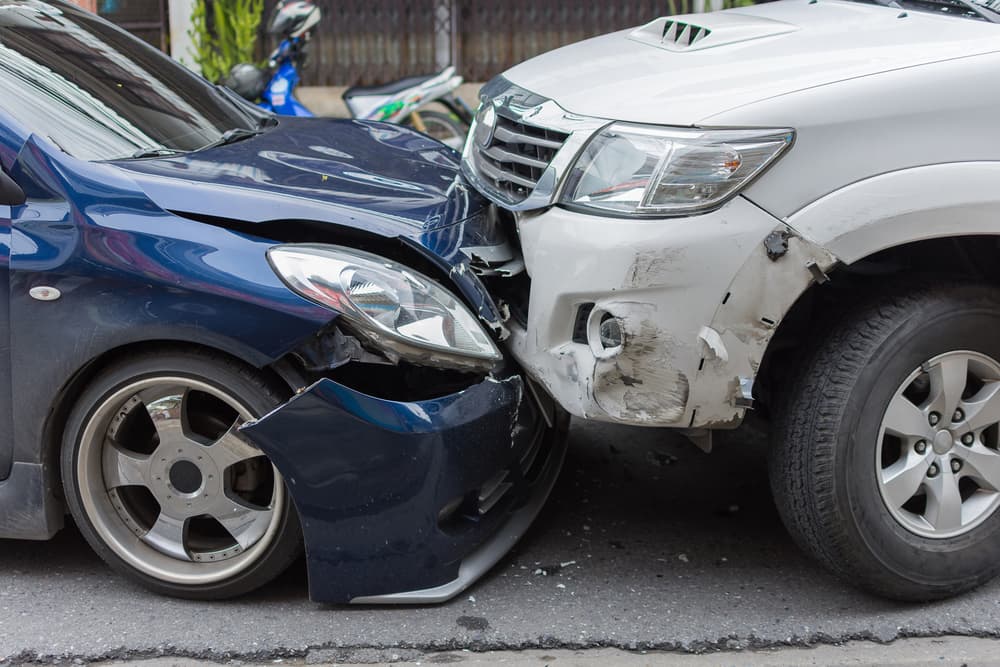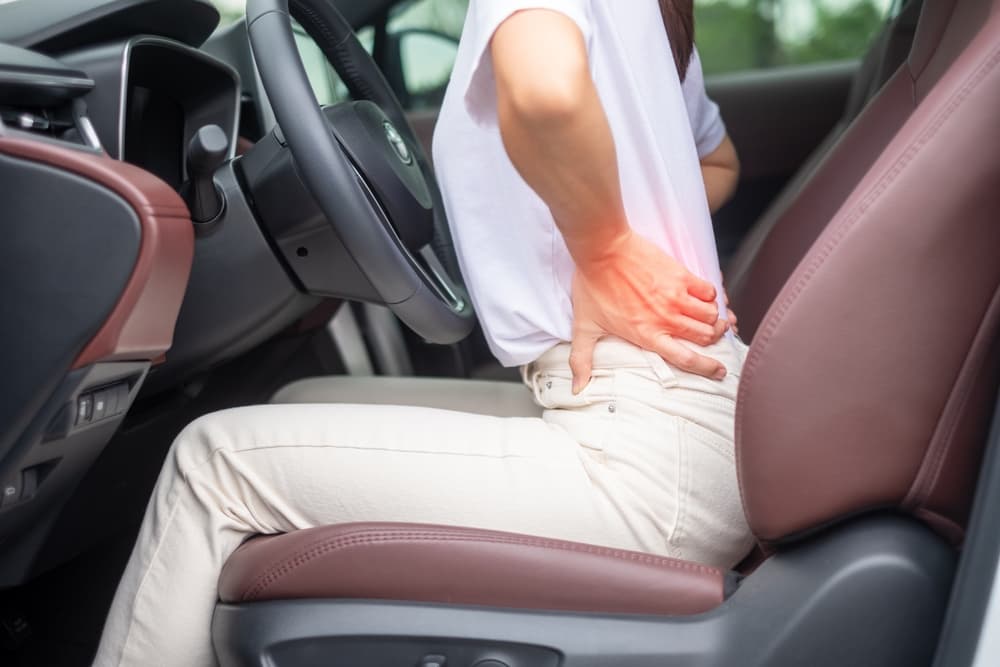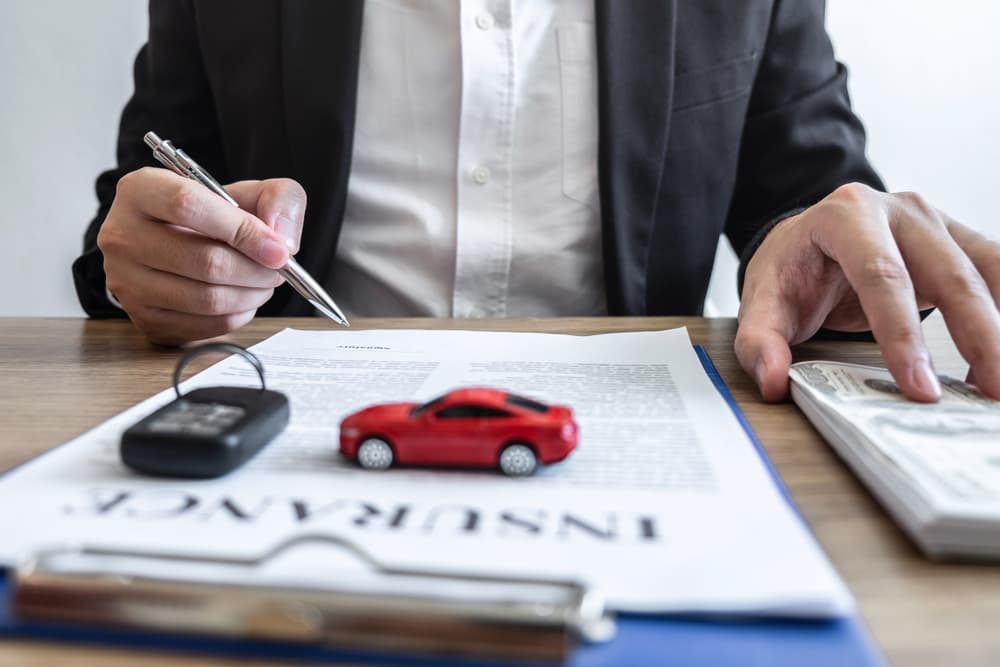
All traffic collisions can shake you up, but head-on collisions might be some of the most traumatizing. A head-on car collision occurs when the front ends of two vehicles crash into each other while traveling in opposite directions. The force generated in such crashes is often doubled because both vehicles are moving toward each other at high speeds. This results in substantial damage to the vehicles and, more critically, significant injuries to the occupants.
Filing insurance claims and securing fair compensation for medical expenses, property damage, and pain and suffering after a head-on accident can be overwhelming. Professional legal representation from a car accident lawyer can provide reassurance and protection, ensuring your rights are safeguarded and you receive the compensation you deserve. Consult a car accident attorney about your head-on crash today.
Common Causes of Head-On Car Collisions
Here are several common factors leading to head-on crashes:
- Distracted Driving: Engaging in activities that divert attention from the road, such as texting, eating, or using a navigation system, significantly increases the risk of drifting into oncoming traffic.
- Driving Under the Influence: Alcohol or drugs impair judgment, reaction times, and motor skills, making it more likely for drivers to lose control of their vehicle and veer into an opposing lane or drive the wrong way on a highway.
- Fatigued Driving: Similar to driving under the influence, fatigue lowers a driver's alertness and reaction time. Tired drivers may fall asleep at the wheel, leading to catastrophic consequences.
- Speeding and Reckless Driving: Exceeding speed limits or engaging in aggressive driving behaviors can make it challenging to navigate curves or respond to changes in traffic patterns safely, forcing vehicles into the path of oncoming traffic.
- Poor Road Conditions: Slippery or uneven roads, lack of proper signage, or poorly designed roadways can contribute to loss of vehicle control and increase the likelihood of head-on collisions.
- Wrong-Way Driving: Entering a highway in the wrong direction, whether due to confusion, missed signs, or impaired judgment, is a direct path to a head-on collision.
Head-on car collisions are among the most dangerous types of traffic accidents, often resulting in severe injuries or fatalities. If someone else’s negligence was the cause, you deserve full compensation for your or your family’s losses. Discuss your options with a car accident attorney.
Injuries From Head-On Car Collisions

Head-on car collisions can cause a variety of serious injuries, including:
- Traumatic Brain Injuries (TBIs): The abrupt halt or collision with the steering wheel or dashboard can cause the brain to bruise, tear, or swell. Concussions are common and can lead to long-term cognitive, emotional, or physical impairments.
- Spinal Cord and Neck Injuries: The violent jerking motion can result in whiplash or severe spinal injuries, potentially causing paralysis. Herniated discs and other back injuries can lead to chronic pain and decreased quality of life.
- Internal injuries: The sudden deceleration experienced in a head-on collision can cause damage to internal organs such as the liver, spleen, or kidneys.
- Fractures and Broken Bones: Limbs flailing and the body absorbing force during a collision often result in fractures, including broken arms, legs, ribs, and complex breaks like hip or pelvic fractures, which may require surgery.
- Soft Tissue Damage: The trauma of a head-on collision can stretch or tear muscles, tendons, and ligaments.
- Lacerations and Burns: Flying debris, shattered glass, and airbags can cause deep cuts, significant blood loss, or scarring. Fires during collisions can cause burns, requiring extensive treatment and potentially resulting in permanent disfigurement.
- Emotional Trauma: The psychological impact of a serious car accident can lead to post-traumatic stress disorder (PTSD), anxiety, depression, and driving-related phobias.
In the aftermath of a head-on collision, seeking immediate medical attention is necessary—even if no serious injuries are immediately apparent. The adrenaline rush experienced during such events can mask pain and symptoms, but a medical evaluation is critical.
Liability in a Head-On Car Collision
In most cases, the driver who crossed the yellow line and caused the head-on collision will be liable for the accident. However, there may be situations where multiple parties share the blame, such as an employer or trucking company. To determine liability, your car accident attorney might gather the following evidence:
- Police report: If the police were called to the scene, their report should document details of the accident, including any traffic violations or contributing factors.
- Witness statements: Eyewitness accounts can provide valuable information about how the accident occurred and who was at fault.
- Accident reconstruction: An accident reconstruction expert can analyze the evidence, skid marks, and vehicle damage to recreate the sequence of events leading to the collision.
- Surveillance footage: If available, surveillance footage from nearby cameras can provide additional evidence of how the accident occurred.
- Medical documentation: Medical records detailing your injuries can help establish the severity of the impact and the long-term consequences.
Dealing with Insurance Companies

Filing claims with insurance companies can be daunting, but starting soon after the accident with a car accident lawyer leading the process is important. Insurance companies often try to pay as little as possible and may not fully understand the extent of your injuries or expenses. They might offer quick settlements that don't cover all your medical bills, lost income, or future care costs. A knowledgeable car accident attorney can evaluate your claim and negotiate to ensure you get the full compensation you're entitled to for your injuries and losses.
Holding Negligent Drivers Accountable
To hold a negligent driver accountable, you must prove that their actions or lack thereof directly led to the accident and resulting damages. With the help of a dedicated car accident attorney, you can gather evidence to prove liability.
Contact a Local Car Accident Lawyer
Head-on car collisions are not just accidents—they're often preventable life-altering events that can leave lasting scars. Don't wait to take action if you or someone you love has been through this traumatic experience because of someone else's negligence.
Seeking help from an experienced personal injury lawyer is important in securing the justice and compensation you deserve. Remember, you have rights and options. Reach out today to protect your future and regain control after such a devastating incident.
